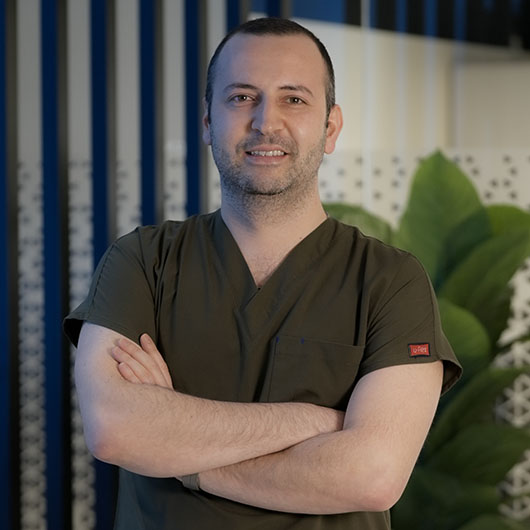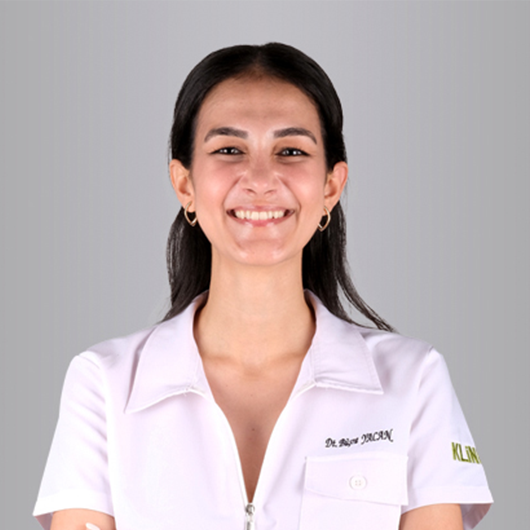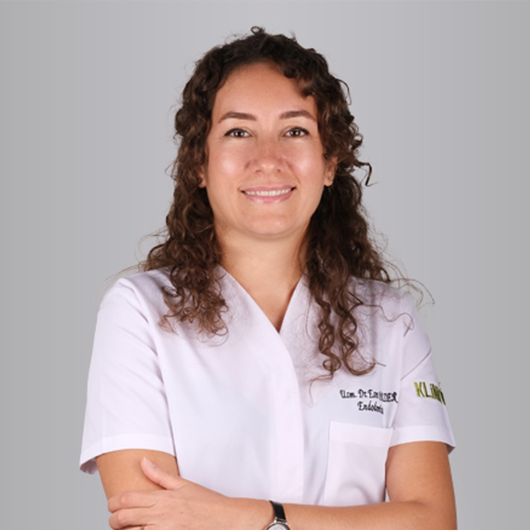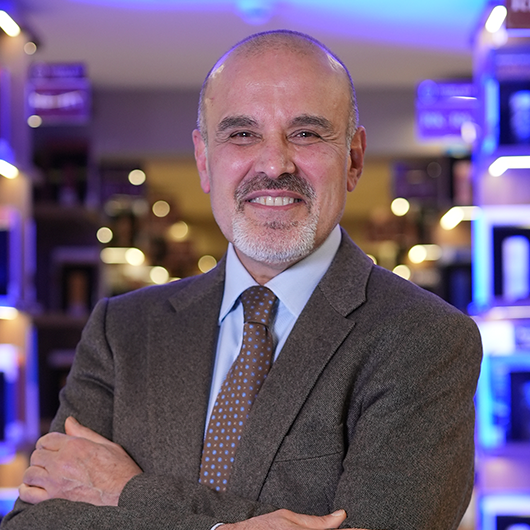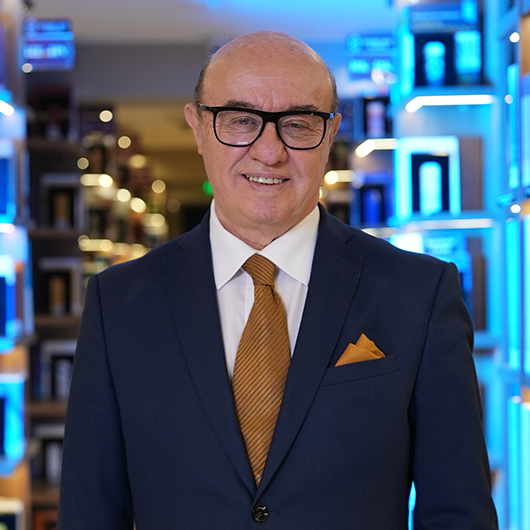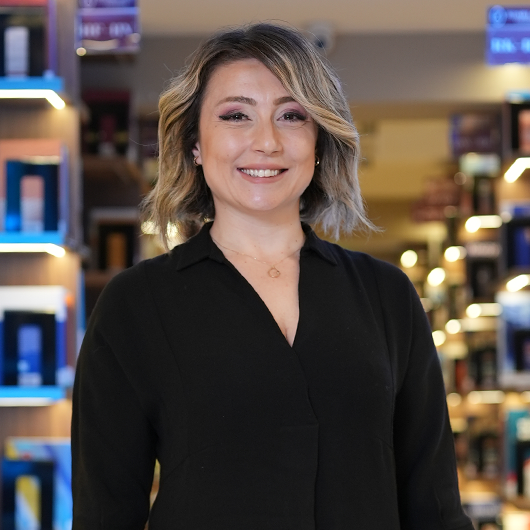Gerodontology
Gerodontology (Geriatric Dentistry) focuses on addressing the specific oral and dental needs that arise in the elderly population, with the goal of preserving, treating, and improving their oral and dental health. Common issues in older age include tooth wear, dental caries, gum diseases, tooth loss, and issues related to the fit of dentures. Gerodontologists have specialized expertise and experience in diagnosing, preventing, and treating such problems.
Gerodontology
- What Is Gerodontology?
- What Are Gerodontology Treatments?
- What Oral Conditions Are Common in the Elderly?
What Is Gerodontology?
Gerodontology, also known as geriatric dentistry, focuses on preserving, treating, and improving the oral and dental health of the elderly population, addressing the unique needs that arise in their oral and dental care. Common issues in old age include tooth wear, cavities, gum diseases, tooth loss, and the fit of dentures. Gerodontologists have specialized expertise and experience in diagnosing, preventing, and treating such problems. Gerodontology deals with dental and oral problems that arise during the aging process and applies various treatments to maintain and improve the oral health of elderly individuals. Issues such as tooth wear, cavities, gum diseases, tooth loss, and denture fit become more common in old age. Addressing these issues requires special attention and expertise, which gerodontology provides.
Gerodontology employs various treatment methods to maintain the oral health of elderly individuals and enhance their quality of life. These treatments may include tooth extraction, filling procedures, placement of bridges and dentures, gum treatments, and aesthetic improvements. Additionally, gerodontologists offer recommendations on oral hygiene and conduct regular check-ups to monitor oral health. Gerodontology plays a crucial role in enhancing the quality of life for elderly individuals because a healthy oral and dental structure has a positive impact on nutrition, speech, and overall lifestyle. Therefore, gerodontology specialists adopt a comprehensive approach to maintain and improve the oral health of elderly individuals.
What Are Gerodontology Treatments?
Gerodontology offers various treatment options to maintain, treat, and improve the oral health of elderly individuals. Here are some of the treatment options in gerodontology:
- Tooth Extraction: If a tooth is severely damaged or weakened beyond repair, tooth extraction may be necessary, and gerodontists perform this procedure safely.
- Fillings: When issues like tooth decay arise, gerodontists often prefer filling applications. Fillings clean and restore the decayed area, thereby improving the tooth's function and durability.
- Dentures: Tooth loss is a common issue in old age, and gerodontists can use dentures to replace missing teeth. Dentures can be full or partial and consist of artificial teeth that fit onto the gums.
- Bridges: Bridges can be used in cases of single or multiple tooth loss. They involve anchoring artificial teeth to adjacent teeth to create a fixed structure.
- Gum Treatment: Gum diseases become more prevalent in old age. Gerodontists use gum treatment methods to maintain and improve gum health. Teeth Whitening and Aesthetic Improvements: Aging can lead to changes in tooth color and aesthetic concerns. Gerodontists can enhance tooth aesthetics through teeth whitening procedures or aesthetic dentistry.
- Implants: In cases of tooth loss, implants can be used to replace missing teeth temporarily or permanently. Implants function as artificial tooth roots made of titanium, integrating with the jawbone to provide a strong and durable tooth replacement.
- Periodontal Treatment: Gum diseases are more common in elderly individuals, and periodontal treatment involves the diagnosis and treatment of gum-related problems. This includes treating gum inflammation, gum recession, gum pockets, and bone loss.
- Root Canal Treatment: In cases of severe toothache or dental infections, gerodontists may perform root canal treatment. During this procedure, the pulp inside the tooth is removed, and the empty canal is filled, alleviating pain and preserving tooth health.
- Oral Hygiene Education: Gerodontists emphasize the importance of oral hygiene and provide education on proper tooth brushing, flossing, and oral care techniques. This encourages elderly individuals to maintain good oral hygiene practices at home.
- Oral Cancer Screening: The risk of oral cancer increases with age. Gerodontists conduct screenings during routine check-ups to detect oral cancer. Early diagnosis improves treatment outcomes and enhances quality of life.
- Oral Surgery: In some cases, elderly individuals may require oral surgery, including procedures such as the removal of hard tissues (cysts, tumors, etc.), jawbone reshaping, or implant placement. Gerodontists may perform these surgeries or refer patients to specialists.
- Adjustment of Dentures: Proper fitting and adjustment of dentures are crucial in elderly individuals. Gerodontists ensure that dentures fit comfortably and make necessary adjustments when placing or replacing them.
- Oral Health Check-Ups: Gerodontology emphasizes the importance of regular oral health check-ups. Elderly individuals are encouraged to have periodic examinations and cleanings with gerodontists. These check-ups allow for the early detection of potential issues and more effective treatment.
- Pain Management: Oral and dental pain is often experienced by elderly individuals. Gerodontists employ appropriate pain management techniques to alleviate discomfort and provide relief, ultimately enhancing their quality of life.
What Oral Conditions Are Common in the Elderly?
Various oral conditions can arise in elderly individuals due to the aging process and other factors. Here are some commonly seen oral conditions in the elderly:
- Tooth Decay: Tooth decay becomes more common in old age due to factors like weakened tooth enamel, tooth wear, and insufficient attention to tooth brushing and oral hygiene.
- Gum Diseases: Periodontal diseases, including gingivitis (gum inflammation) and periodontitis (gum disease), are prevalent oral conditions in elderly individuals. Symptoms may include gum recession, bleeding gums, swelling around the gums, and tooth loss.
- Oral Cancer: The risk of oral cancer increases with age. It can affect areas like the lips, tongue, cheeks, gums, and the oral cavity in general. Symptoms may include oral ulcers, swelling, bleeding, and difficulty swallowing.
- Xerostomia (Dry Mouth): Dry mouth is common among elderly individuals and can result from factors such as medication use, systemic illnesses, and reduced salivary gland function. Dry mouth can lead to discomfort, difficulty swallowing, bad breath, and an increased susceptibility to tooth decay.
- Prosthetic-Related Issues: Dentures are frequently used to replace missing teeth in elderly individuals. However, the fit of dentures can change over time, leading to issues such as denture looseness, discomfort, sores, or irritation inside the mouth.
- Candidiasis Due to Dry Mouth: Dry mouth increases the risk of fungal infections, including candidiasis or oral thrush. This condition can manifest as white lesions in the mouth, burning sensations, and taste disturbances.
- Common Gum Infections: Elderly individuals may experience gum infections characterized by symptoms like gum redness, swelling, tenderness, and bleeding. These infections can lead to gum disease and tooth loss.
- Root Decay: Root decay can occur when tooth roots become exposed over time. It can result in tooth sensitivity, pain, and infections.
- Tongue Disorders: Lesions, sores, or infections on the tongue are frequently seen issues in elderly individuals. These conditions can cause tongue pain, burning sensations, taste disturbances, and difficulty swallowing.
- Salivary Gland Problems: With aging, the function of salivary glands may decrease, resulting in reduced saliva production. This condition leads to dry mouth, increasing the risk of tooth decay, oral infections, and swallowing difficulties.
- Sensitive Teeth: Aging can lead to a loss of tooth enamel, making teeth more sensitive. They may react to hot, cold, or acidic foods and beverages with discomfort or pain.
- Temporomandibular Joint (TMJ) Disorders: Temporomandibular joint dysfunction can develop with age, leading to symptoms like jaw pain, jaw locking, and TMJ clicking.
Doctors
List of doctors under the HOP of the corporation
